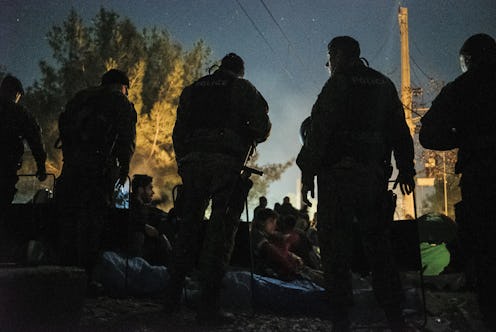News
The Refugee Facts You Really Need To Know
The U.S. has resettled over 3 million refugees from all over the world since 1975, according to the U.S. Department of State. To be classified as a refugee, someone must have fled her home country and could not return because "she has a well-founded fear of persecution based on religion, race, nationality, political opinion or membership in a particular social group," according to the Department of State's website. The U.S. has one of the most robust screening processes for refugees, but many top-level security officials and — more recently — governors have expressed concerns about how secure the process really is in light of the terrorist attacks in Paris. Before evaluating the issue, though, there are real stats about refugees that you should know.
The House passed a bill Thursday that would temporarily stop Iraqi and Syrian refugees from being resettled in the U.S., and would require even stricter screening provisions to be put in place for future refugees, according to CNN. Obama has said that he would veto the bill, which might see a Senate vote after Thanksgiving.
A total of 1,854 Syrian refugees have been resettled in 130 towns and cities in the U.S. since 2012, according to the New York Times. Here are stats about refugees and national security that you absolutely need to know before evaluating the issue:
Given stats like these, it's pretty clear the the U.S.' refugee vetting program seemed to be doing its job prior to any proposed, stricter provisions being added. Further, the U.S. hasn't even admitted very many refugees from Syrian when compared to other countries. Germany, for example, has resettled 92, 991 Syrian refugees since 2012, according to the Times. And — directly refuting worries from many anti-refugee U.S. governors — refugees have not increased the crime rate in Germany, meaning they do not enter the country with the intention to commit crimes, according to the Deutsche Welle.
If a bill like the one passed in the House is actually going to be implemented, lawmakers might want to start looking for hard evidence that refugees pose a security threat to the U.S.
Infographic: Claire Felter/Tina Gong/Melissah Yang/Bustle
